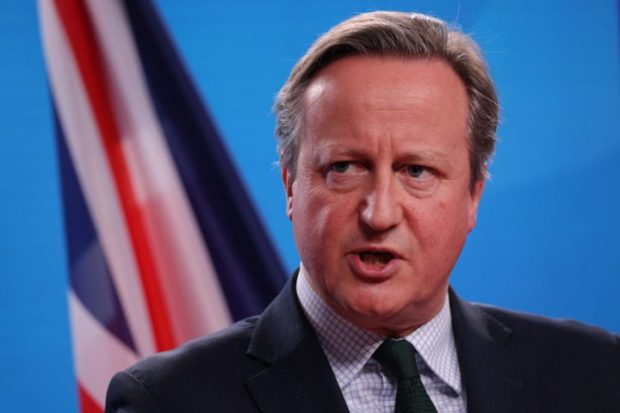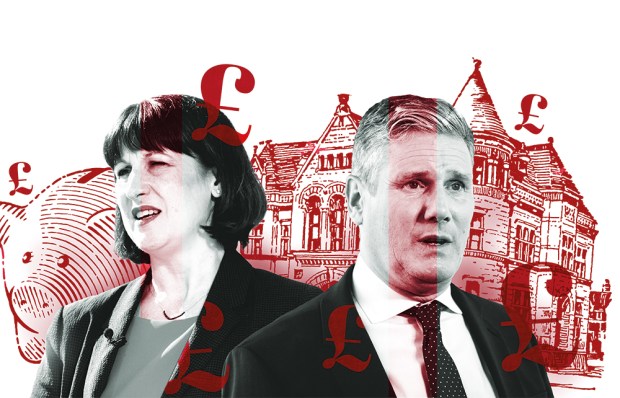The best thing I can say about Boris Johnson is that he’s not a real Tory. The Prime Minister belongs instead to the popular liberal right, though he seems to get less popular by the day. His appeal to right-wing voters is based on his promise to ‘get Brexit done’ and the demented, 30-tweet-thread rage-pain he stirs in the hearts of some progressives. What these supporters have not yet but one day will have to confront is the fact that Boris is not one of them. Not on immigration, not on climate change, not on the culture wars. Anyone who can establish a substantive difference between his response to the riots and that of Sir Keir Starmer, feel free to fire in down in the comments.
Yesterday’s speech putting investment at the heart of the government’s agenda is another sign that we are not dealing with a conventional Conservative. The speech hit some of the right notes for a government looking to spend its way out of the economic slump inflicted by China’s coronavirus. Investment will be directed to three categories of infrastructure: transport (£100m for roads projects and bridge repair, £10m for Manchester rail), public sector (£1.5bn on hospital buildings, £1bn for school upgrades) and municipal (£96m for town centres). The government will attempt to stimulate the green economy with £100m for carbon capture research, £40m for conservation and ecological recovery and £10m to ‘scale up’ production of electric car components. Britain will be ‘re-forested’ by 75,000 acres per year from 2025 and we will ‘aim to produce the world’s first zero emission long haul passenger aircraft’.
The planning system will be reformed to make it easier to convert commercial properties into residences and the need for planning permission to build homes on vacant land will be removed. £12bn will be spent building 180,000 homes for rent and owner-occupation. In place of EU funding, there will be a UK shared prosperity fund to ‘support local economic recovery by driving economic growth and tackling deprivation’. This will be a key plank of the ‘levelling up’ agenda but as well as the regions, the government wants to be seen as a champion of the nations. It promises to ‘bring forward funding to accelerate infrastructure projects in Scotland, Wales, and Northern Ireland – working with the devolved administrations to identify where we can get spades in the ground’. The advances made by the SNP north of the border, likely to continue in next year’s Holyrood elections, may have finally made Whitehall wake up to the threat to the Union.
Investment to stimulate the economy. Building roads and railways. Funding jobs in shovel-ready projects. Has Franklin Delano Roosevelt returned in the unlikely shape of an old Etonian posh boy? Certainly, Michael Gove speaks of the government having a ‘Rooseveltian’ mission and I note only in passing that FDR was a bombastic, elite-educated (but academically mediocre) orator who overcame his party’s establishment, defied critics with comebacks and upset victories, and ended up an unlikely populist reformer despised by the establishment but a hero to the working man.
The problem with FDR is that his rhetoric is so appealingly homespun, so idealistic and pragmatic at the same time, that it can sway almost anyone, from the impatient radical to the cynical conservative. He made public service sound like the noblest of pursuits but spoke of politics as a national endeavour rather than something that happened in Washington. Everyone wants to be a Rooseveltian — until they see the price tag. FDR was a transformational president because he spent like one to create programmes and agencies that changed Americans’ lives in enduring ways. Getting ‘New Deal’ into today’s headlines for a £5bn capital investment package is a good day’s work for Dominic Cummings considering the actual New Deal cost $41.7bn (or roughly $822bn (£664bn) in today’s money).
By comparison, Boris’s measures are exceedingly modest. In touting the benefits of public spending, the Prime Minister stopped to assure his grassroots that ‘I am not a communist’, but he needn’t have bothered. There is nothing in these announcements that can truly be called transformational. They will do good, of course, but they will not alter any fundamentals of the economy. You don’t have to be a Marxist to think those fundamentals are in need of change, you just need to believe that the state, when it properly acquits itself, can be a force for good.
Roosevelt believed that ‘government is ourselves and not an alien power over us’ but the Prime Minister has not summoned up a similar spirit of common purpose. FDR drew upon grand rhetoric to sell grand ideas; Boris talks big to retail small change. The idea of reform seems to energise him but not enough to make the necessary financial outlay. He is a liberal in his head but still a conservative in his pocketbook.
Got something to add? Join the discussion and comment below.
Get 10 issues for just $10
Subscribe to The Spectator Australia today for the next 10 magazine issues, plus full online access, for just $10.




















Comments
Don't miss out
Join the conversation with other Spectator Australia readers. Subscribe to leave a comment.
SUBSCRIBEAlready a subscriber? Log in